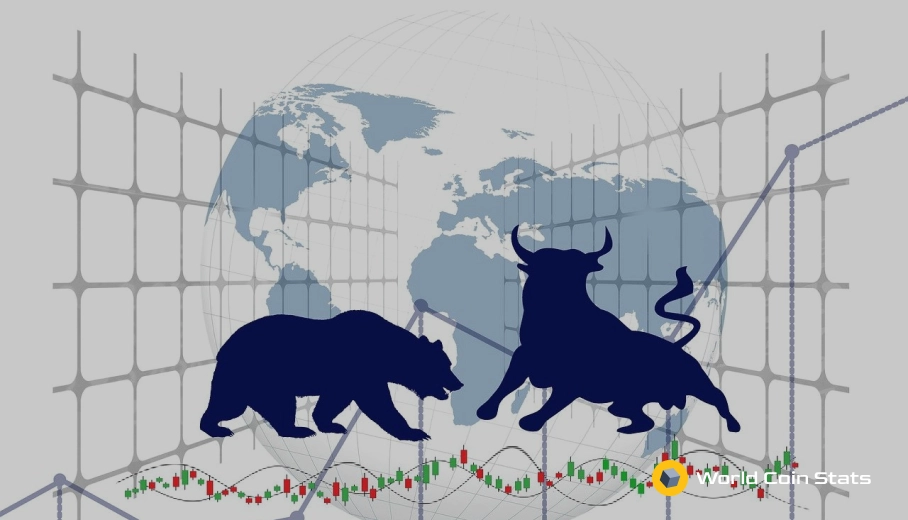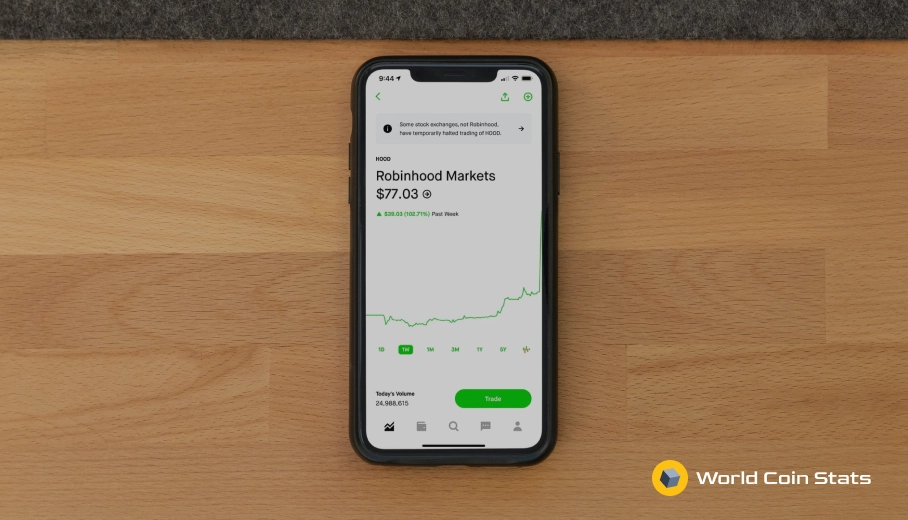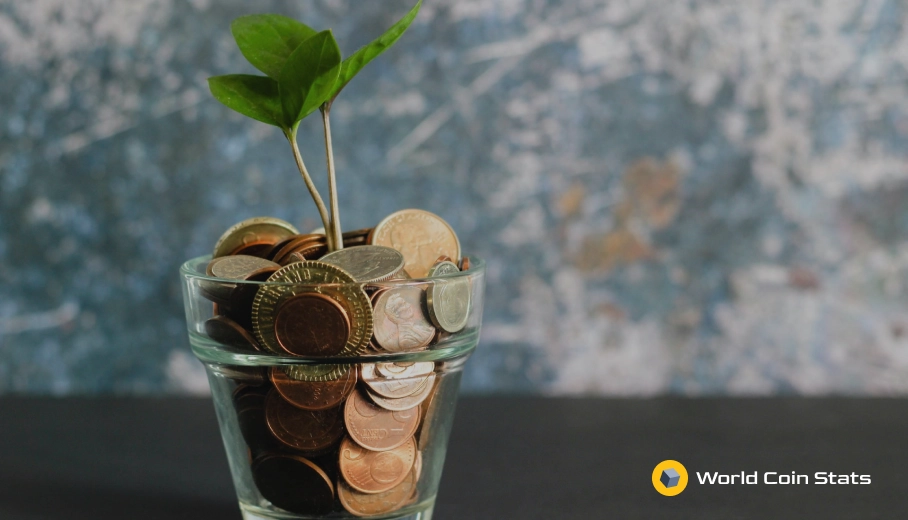Are Bonds Safe If the Market Crashes?
Lately, speculations and rumors are going around. As each year passes by, it seems like these rumors are increasing. People believe there will be another market crash coming soon. Frankly, the hype around this topic right now is real.
Along with these rumors raises the question: Are bonds safe if the market crashes? Nowadays, it is a common belief that bonds are safe heavens. Moreover, they are considered as the most reliable choice during uncertain times by many investors.
Unfortunately, many people don’t understand how financial markets work and function. Moreover, these people often confuse the terms market crash with a bear market. So, if you want to understand the difference between these two terms as well as whether bonds are the safest choice during a market crash or bear market, then keep on reading.
Contents
Definition of a Stock Market Crash
A stock market crash occurs when a stock index drops severely in a day or two of trading. Typically, the indexes are the NASDAQ, the Standard & Poor’s 500 as well as the Dow Jones Industrial Average.
Moreover, stock market crashes occur when panicked sellers start to sell their shares after an unexpected economic event. The panic selling causes a massive fall in the value of shares. On the other hand, the fear of loss due to the fall in the value of stocks leads to people selling their shares.
List of Stock Market Crashes
- The 1673 Tulip Bubble
- The South Sea Bubble of 1711
- Vienna Stock Exchange Crash of May 1873
-
- Triggered by uncontrolled speculation
- Led to the end of the economic growth in the Monarchy and a drop in the number of the Vienna World Exhibition visitors
- Paris Bourse crash of 1882 – the worst crisis in the French economy in the 19th century
-
- Triggered by the collapse of l’ Union Générale in January 1882
- Led to a recession which lasted until the end of the decade
- Wall Street crash of October 1929 – the biggest and most significant crash in financial market history
-
- Share prices on the New York Stock Exchange collapsed
- On October 29, 16,410,030 shares were traded on NYSE in one day
- Also called the Great Crash, Black Tuesday or the Wall Street crash
- Led to the Great Depression which affected the Western world
- Flash crash of 1962
- Brazilian Markets crash of 1971 – lasted until the early 1980s.
- The stock market crash from 1973 to 1974
- Led to the dramatic rise in oil prices, the miners’ strike and the downfall of the Heath government
- Black Monday Crash of October 1987
- Rio de Janeiro Stock Exchange crash 1989
- Asian crash of 1998
- The Dot.com Bubble burst of 1999
- The “Great Recession” Stock market crash of 2008
- Flash crash from May 6, 2010
- The Dow Jones Industrial Average suffered its worst intra-day point loss, dropping nearly 1,000 points
- Chinese Stock market crash 2015 – 2016
Definition of Bear Market
A bear market is present when there is a general decline in the stock market. Typically, there is a securities price decline of 20% or more amid widespread negative investor sentiment and fear. However, if the decline is between 10% and 20%, then this is considered a correction.
Typically, bear markets can range from a couple of weeks to a couple of years. As to what can cause or trigger a bear market, there are different factors — for example, a weak economy, a slowing economy, low employment, weak productivity, etc.
List of Bear Markets
- September 1929 to June 1932
-
- Lasted 34 months
- S&P 500 lost 86.1%
- May 1946 to June 1949
-
- Lasted 37 months
- S&P 500 lost 29.6%
- December 1961 to June 1962
-
- Lasted 6 months
- S&P 500 lost 28%
- November 1968 to May 1970
-
- Lasted 18 months
- S&P 500 lost 36.1%
- January 1973 to October 1974
-
- Lasted 21 months
- S&P 500 lost 48%
- November 1980 to August 1982
-
- Lasted 20 months
- S&P 500 loss: 27%
- August 1987 to December 1987
-
- Lasted 3 months
- S&P 500 lost 34%
- March 2000 to October 2002
-
- Lasted 31 months
- S&P 500 lost 49%
- October 2007 to March 2009
-
- Lasted 17 months
- S&P 500 lost 57%
In short, a bear market is a needed retraction to stock prices when they have become overvalued. In other words, a bear market is an end to a bull market. On the other hand, for a market crash to happen, there has to be a major catastrophic event. Now that you know the difference between a market crash and a bear market, it’s time to move forward.
Are Bonds Safe If the Market Crashes?
As we all know, stocks do well when the economy is strong. During this time, investors feel confident, consumers are making purchases, there is a higher demand, companies are earning well. Moreover, this is the best time to buy stocks and sell bonds. Then, when investors least expect it, the stock market starts going down. What happens then with stock and bond prices?
Let’s take a look at what happened in September 2008. As you know, on September 29, 2008, the stock market crashed. Just a year earlier, the Dow Jones Industrial Average hit its pre-recession high. Moreover, it closed at 14,164.53 (October 9, 2007). However, after the Congress rejected the bank bailout bill, people started panicking. On September 29,2008, the Dow fell 777.68 points in intra-day trading.
As a result of the stock market crash, there was also a crash of Junk Bonds. Also, BBB rated bonds crashed. Furthermore, the value of AAA-rated bonds also changed. On the other hand, the Treasury Bonds value increased due to the extra demand. In just a few months, stocks and corporate bonds made a comeback. Meanwhile, Treasury Bonds lost much of their value.
Typically, stocks have both positive and negative correlations to the Bond Price. In general, during a stock market crash, the value of the stock will go down. Meanwhile, you may see that the bond value is rising due to the uncertainty. In other words, when the economy is slow, stock prices decline, corporate profits fall, consumers buy less.
That’s when investors appreciate regular interest payments guaranteed by bonds the most. So, having bonds is always a smart choice. They will keep your portfolio stable. Furthermore, they will allow you to rebalance when the stock value goes down.
Bottom Line
It is almost impossible to predict or avoid dips, corrections, or stock market crashes. Even experienced investors find it difficult to predict the movement of the market. However, if you look back at history’s biggest stock market crashes, bear and bull markets, then it will be much easier for you to guide your investment.
Furthermore, a well-diversified portfolio is the best solution to any stock market movement. So, make sure you keep a diversified portfolio of stocks, bonds, and other commodities. This way, you limit the exposure to any single asset or risk.




